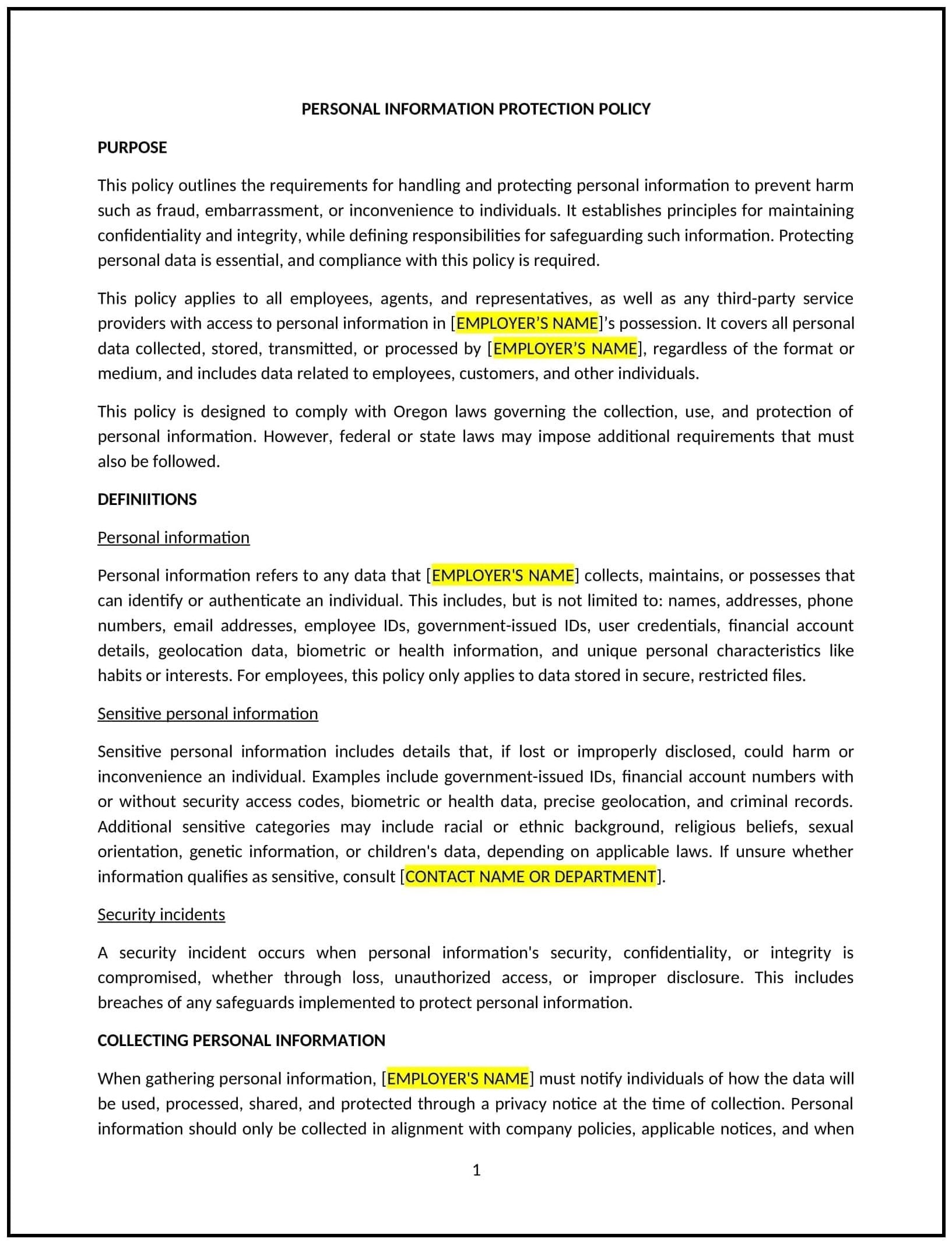Personal information protection policy (Oregon): Free template
Got contracts to review? While you're here for policies, let Cobrief make contract review effortless—start your free review now.

Customize this template for free
Personal information protection policy (Oregon)
This personal information protection policy is designed to help Oregon businesses safeguard sensitive employee and customer data. It outlines procedures for data collection, storage, and access to prevent breaches and ensure compliance with privacy laws.
By adopting this policy, businesses can protect sensitive information, reduce legal risks, and build trust with employees and customers.
How to use this personal information protection policy (Oregon)
- Define sensitive data: Clarify what constitutes personal information, such as Social Security numbers, addresses, or financial data.
- Establish data collection procedures: Specify how and why personal information is collected and used.
- Implement security measures: Use encryption, access controls, and secure storage to protect data.
- Train employees: Educate staff on handling personal information responsibly and recognizing potential security threats.
- Monitor compliance: Regularly review data handling practices to ensure adherence to the policy.
- Review and update: Assess the policy annually to ensure it aligns with evolving privacy laws and security threats.
Benefits of using this personal information protection policy (Oregon)
This policy provides several advantages for Oregon businesses:
- Protects sensitive data: Reduces the risk of data breaches and unauthorized access.
- Enhances trust: Demonstrates a commitment to safeguarding employee and customer information.
- Reduces legal risks: Minimizes the potential for penalties or lawsuits related to data breaches.
- Improves compliance: Aligns with privacy laws, such as the Oregon Consumer Identity Theft Protection Act.
- Supports reputation: Builds a positive image as a business that prioritizes data security.
Tips for using this personal information protection policy (Oregon)
- Communicate clearly: Share the policy with employees and include it in onboarding materials.
- Provide training: Educate staff on handling personal information responsibly and recognizing security threats.
- Monitor compliance: Regularly review data handling practices to ensure adherence to the policy.
- Address issues promptly: Take corrective action if data breaches or security vulnerabilities are identified.
- Update regularly: Revise the policy as needed to reflect changes in privacy laws or security threats.